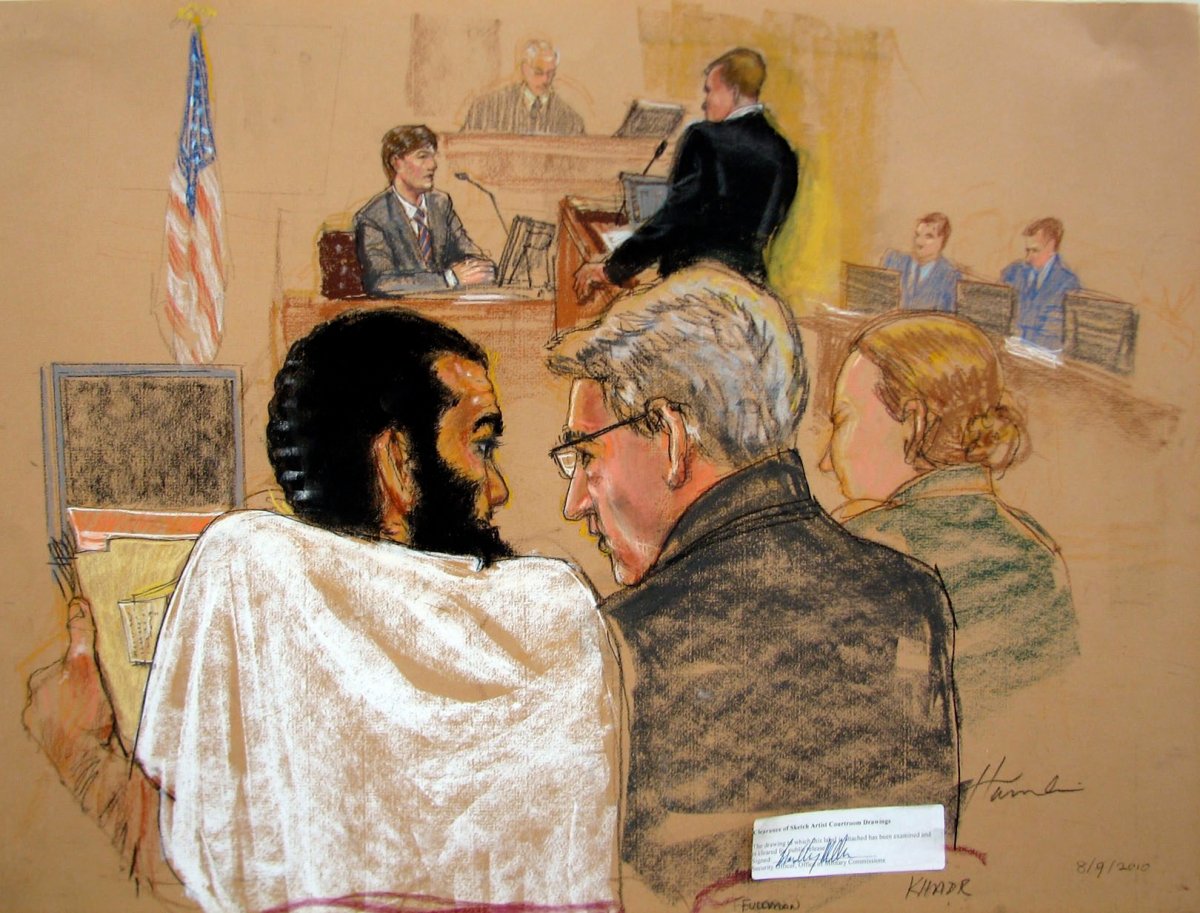Omar Khadr stands a good chance of having at least two of his five terror convictions overturned. But that probably won’t get him out of prison any sooner.

The Canadian was repatriated last fall after a decade in Guantanamo Bay and two years after pleading guilty to supporting terror, conspiring to commit terror and murdering U.S. Sergeant First Class Christopher Speer in an Afghan firefight when he was 15.
As part of the plea deal Khadr, now 26, got an eight-year sentence, most of which would be spent in Canada. He also waived his right to appeal. But all bets are off if the court that convicted him had no jurisdiction to do so.
Timeline: Omar Khadr’s legal odyssey
A U.S. court has already ruled that material support of terrorism and conspiracy aren’t legitimate charges because they didn’t exist as war crimes at the time the offences were committed.
“You can’t make a crime a crime retroactively,” said lawyer David Frakt, who has represented prominent Guantanamo detainees.
But the stakes are high for the U.S. government: All seven convictions of Guantanamo Bay detainees have involved a charge of material support for terror – “so all of the convictions are basically potentially invalid,” Frakt said.
So the government appealed, arguing that prosecutors weren’t referring to international law of war, but the U.S. domestic law of war – a Civil War-era code that hasn’t been used since shortly after the Second World War, Frakt said.
- What is a halal mortgage? How interest-free home financing works in Canada
- Capital gains changes are ‘really fair,’ Freeland says, as doctors cry foul
- Budget 2024 failed to spark ‘political reboot’ for Liberals, polling suggests
- Peel police chief met Sri Lankan officer a court says ‘participated’ in torture
“Most military law scholars are very skeptical of this idea,” he added.
He thinks the odds are good that Khadr and other Guantanamo convicts will succeed in getting those two charges overturned – eventually.
The appeal will be heard in D.C. Circuit Court Sept. 30 and there probably won’t be a ruling until late fall; if either side appeals (and the U.S. Supreme Court agrees to hear it), a final verdict could take longer still. Only then would Khadr’s appeal be heard.
Even then, there’s still the arguably more serious murder conviction “in violation of the law of war.” When Khadr pled guilty, the agreed statement of facts outlined his killing Sgt. Speer. It would be much harder for his lawyers to get rid of that conviction – they’d need to successfully argue the entire plea deal, and all ensuing convictions, are invalid.
“It’s all about keeping Omar’s options in a difficult political climate,” said his Canadian lawyer Dennis Edney. “If successful, Omar Khadr will finally be free and able to put to rest our government’s descriptors of him as a war criminal and a terrorist. This is a common misconception that needs to be corrected.”
Right now, Khadr is an inmate at maximum-security Millhaven Penitentiary, near Kingston, Ont. He’s eligible for parole this spring, as he’s about one-third of the way through his sentence.
Public Safety Minister Vic Toews has made clear since last fall that he’d like to see Khadr kept under tight security. A statement from Toews’ spokeswoman Julie Carmichael suggested a favourable ruling from D.C. Circuit Court will do little to change his impressions.
“Omar Khadr is a convicted terrorist. He pleaded guilty to the murder of Christopher Speer, an American Army medic,” she wrote in an email.
“Decisions related to his future will be made by the Parole Board of Canada.”


Comments